This is a transcript of a podcast episode. If reading isn't your thing, you can listen to it using the link above. Alternatively, you can go here to subscribe on iTunes.
This week, I’ll finish telling the original story of Aladdin, which contains much more beheading, poisoning, and slaves than Disney’s version. Then in the mythological creature of the week segment I’ll tell you about the shape-shifting South American dolphin people who, by acting like normal dolphins doing normal dolphin things have driven people insane.
This is the Myths and Legends Podcast, Episode 2B: A Whole New World of Problems
Previously on the show, young Aladdin’s father died, leaving him and his mother destitute. His uncle, a famous magician, conveniently s hows up, and dupes Aladdin into following him out into the wilderness and retrieving a magic lamp. He gives Aladdin a ring with a jinni in it, and betrays the boy, though not before accidentally sealing him underground with the lamp. The magician absconds back to Africa, and Aladdin makes his way out of the cave by virtue of the jinni of the ring. When he gets home, he rubs the lamp and finds the much more powerful jinni, and uses it to make huge feasts, from which he sells the silver platters and builds an upper middle class life. He gets a forbidden look at Princess Ruby, the sultan’s daughter, one day, and his mom goes and secures her hand in marriage, but the sultan asks for three months to prepare. Two months later, the sultan forgets his promise, and weds Ruby to the vizier’s son.
Aladdin was in a bad mood, and though his mother told him to forget about it – they were already wed, and there was nothing he could do – he thought about how to make it right. He couldn’t have the genie make any overt moves, because then the people of the city would think him an evil sorcerer, and the sultan may even execute him. He thought about it, and remembered that even though they were wed, the marriage had not yet been consummated.
That night, he waited in a basement somewhere in the city. He had made plans with the genie that whenever Ruby and her new husband went to bed, it would trigger his plan. He sat there in complete darkness, waiting.
An hour passed, and then, in an instant, Ruby’s bed was transported to the basement. Her husband wasn’t there, and Aladdin knew that he was locked in another cold basement somewhere else in the city. She sat there, trembling. He told her, “you’re not here so I can soil your honor, but rather because your father made promises he did not keep. Sleep well, my princess.” And with that, he laid down next to her. For some reason, he placed a sword in between them. She didn’t sleep at all.
As the sun was rising, Aladdin summoned the genie, and he jumped out of bed and had the genie return the bed, bride, and groom to their bedchamber. In an instant, they found themselves there. And, because this isn’t weird or anything, the sultan, Ruby’s father, barges in and asks her how she enjoyed the night. She is sheepish because she’s still trying to understand what’s going on, having been so recently transported back to her room. He is perturbed, and goes and talks to his wife.
Later in the day, she meets up with her daughter, who tells her all about being transported out of her room by a terrifying jinni. The mother goes and talks to the Vizier’s son who says, no, that’s insane. We had a great wedding night and absolutely consummated the marriage which I was totally capable of doing. He says this, presumably, because he wants to remain married to the princess. The mother dismisses her daughter’s story as a crazy dream, and they go out and parade around the capitol.
Aladdin watches Ruby and her husband force smiles on the parade, and laughs as all the people envy them, since he knows how they spent last night, and how they will spend tonight.
He does this for another night, and again, for some reason, the sultan comes barging in to his daughter’s bedroom the moment they are back. He eagerly asks how the night went, and once again, his daughter is evasive and refuses to answer. Then, Sultan short fuse moves well past reasonable, gentle questions and pulls out a sword, threatening to cut off her head if she does not tell him what’s going on. She tells him the whole story, and he says, sure, that’s definitely what happened. You know what? I’ll have a retinue of my best men standing guard in your bedchamber tonight, so you and your husband can finally have a romantic wedding night.
Meeting the Vizier out in the hallway, he tells him to inquire with his son what actually happens. After much prodding, the vizier’s son tells his father that what Ruby says is true, and he can’t endure another night like the two he just had. The Vizier tells him not to say that to anyone, and goes to the Sultan.
When he reaches the Sultan, he tells the ruler that yes, Ruby’s story was true, and they need to--- but he’s interrupted. Because his daughter’s story was true, they won’t try to fight against the supernatural to keep these two people together – their marriage will be called off and annulled. The vizier is annoyed, but there’s nothing he can do – when the sultan says something, it’s law. And just like that, the marriage is annulled, but the sultan has still forgotten all about his promise to Aladdin.
At the end of the third month, Aladdin’s mother walked to where the sultan was holding court. She reminded him of his promise, and he was flabbergasted. He had promised his daughter to this tailor’s son, and even though he was now making a steady middle-class income, he was still from low stock and unworthy to marry the daughter of a sultan. The Vizier, who was even more insulted by this, since his son couldn’t even marry the princess, came up with a plan.
With his vizier’s prompting, the sultan said that Aladdin, to prove his worth, had to provide forty dishes filled with gold and jewels. Forty slave girls had to bear the dishes, and, oh yeah, he also needed forty black slaves. If Aladdin can make this happen, he can marry princess Ruby.
The mother returned home in consternation, saying that it was impossible – people like them couldn’t get jewels and slaves, forgetting precisely the thing that could get them those jewels and slaves. Aladdin laughs, seeing the obvious solution. He tells her he’ll take care of it, and she leaves for the market to get some food, because I guess they’ve stopped relying on the genie for that.
And take care of it he does. He goes into his bedroom, summons the genie, and wishes for exactly what the sultan demanded.
As an aside, I find this about-face regarding the power of the lamp to be fairly odd. Up to this point, Aladdin has been super-judicious with the power of the jinni, mainly using it in an indirect manner to get what he wants and needs. He needs money to live on, so he has it summon feasts and he sells the silver. He needs Ruby and her husband to get an annulment, so he thinks up a way to terrorize them and keep them from consummating their marriage. He doesn’t even use it when asking for the princess’s hand, opting instead to send his mother with the fruit jewels he picked.
From here on out, though, we’ll see him stop being so cautious. He’ll use the lamp to summon the exact solution he needs, immediately, and this actually leads to a great amount of trouble for him. Even though he has a magical jinni and never really played by the rules, you can sort of see why he responded the way he did. The sultan went back on a promise and made an extremely unreasonable request – one that the sultan himself likely couldn’t even fulfill, and it is easy to see why Aladdin would stop being the reasonable, practical man in the face of a world that has shown that it only wants to keep him in his place.
There’s no mention of where all these slaves come from or even where they stand in Aladdin’s family house, but he marches them immediately to the sultan. The slaves marched two-by-two, male and female, in the streets up to the palace with Aladdin’s mother. When they reached the sultan, everyone was struck by how beautiful this sight was…you know, because opulent oppression is so beautiful. The narrator also makes a point to mention, several times, just how amazingly beautiful these slave girls are, the implication being…uncomfortable and more than a bit vile. Even the sultan chimes it. It’s all a bit much.
They came in to where the sultan was holding court, and the slave women placed their golden dishes full of jewels and precious metals before the sultan. When the vizier saw them, he said, “all this is not worth a paring of her fingernails.” The sultan could see that this came from a place of envy and said that this was sufficient, implying that it was definitely worth more than his daughter. He told Aladdin’s mother that Aladdin could marry princess Ruby.
The sultan took the slaves and the jewels to Ruby, who was still sad about things not working out with the vizier’s son. When she saw the riches, though, and learned that she was to be married, again, this night to the man that brought them, she forgot about what’s-his-name.
Back in their home, Aladdin’s mother told him the good news, and he went about further abusing the power of the lamp. He summoned a wonderful bejeweled bath, where he was bathed by Jinn, clothes better than any king on earth, a horse, slaves to attend his mother, and so on, and made his way to the palace surrounded by slaves who were throwing gold out to the city’s inhabitants on their way.
When they made it to the palace, the sultan was awestruck. That this son of a tailor had met this ridiculous demand for the slaves and gold in a single day, and now rode in with such a retinue, was not really questioned. The sultan only wished that he had gotten to know the young man sooner.
The sultan threw a banquet for Aladdin, and it’s said that Aladdin spoke with the wit and eloquence of one befitting a royal position. Where the (formerly) poor son of a tailor learned all the wit and eloquence of one befitting a royal position is not quite addressed. The sultan draws up a marriage contract and weds Aladdin and princess Ruby right there at the banquet. After about a few days of feasts, Ruby spends a third married night with Aladdin, though this one without a kidnapping jinni or a sword between them, and everything presumably goes off without a hitch, because they are happy after their nuptials.
Aladdin wants to build a palace worthy of Ruby, and the sultan, instead of being offended, offers him a plot of land behind his current palace. Aladdin, having seen how expedient it is to ask the jinni for exactly what he wants instead of cleverly working around things, asks the jinni for exactly what he wants, and the next morning there is a magnificent palace on the plot of land that had been gifted to him. The sultan is awestruck, and even happier that he married his daughter off to the exceedingly rich Aladdin. The vizier, though, rightly assumes that it has to be by means of enchantment that Aladdin built this palace…overnight…oh, and it’s the most amazing palace in the world with rooms literally filled with gold and jewels. The sultan, clearly missing the point, says that the vizier is just jealous because his son couldn’t build her such a place. The vizier, though definitely jealous, does have a point, and goes away seething.
The night after they consummate their marriage, Aladdin invites the sultan and all his heads of state over for breakfast. The sultan notices the lattice-work in one of the windows is not completed, and wants to do it himself. Aladdin remarks that it would be great for Ruby to have this in her house, to remember her father by, and he approves. Thus begins an odd little interchange where Aladdin entrusts this to the sultan, and as it turns out, the sultan can’t find enough jewels in his kingdom to complete half of the job. Aladdin gets exasperated with the workers, and decides to send them away, summoning the jinni to complete it himself. The sultan learns of this, kisses his son-in-law, and exclaims how beautiful the window was. This not only goes against the original premise of the whole thing, but seems a bit insulting to the sultan. Of course, not of these things are addressed and the story just plods along.
Aladdin, with a life of poverty behind him, took to the streets regularly and threw gold out for the people. He also turned into a fantastic horse rider, and as son of the sultan, was appointed to chief of his troops. He was actually out at war on behalf of the sultan when the magician, his false uncle, returned to the Chinese capital in search of the boy he left for dead.
Having returned home to the Barbary coast, he began to hear whispers coming from the east of a young man who’s star was on the rise. As the years went on, these whispers transformed into exclamations of wonder. The man had not only married the Chinese sultan’s daughter, but built her the most wonderful palace in the world, overnight! He rides out in the streets and gives gold to the poor, and now he leads the Chinese armies to victory. The magician, through some form of divination, confirms this, and decides to return to the east, take the lamp, and do what he thought he did years ago – kill Aladdin.
This cretinous punk may have a jinni, the magician thinks, but he’s no match for the man’s wit and the powers of the arcane. He travels to China, and when he arrives at the city, he goes to a coppersmith and has him cast many brand new lamps, and then he changed clothes so he looked like a crazy old beggar. He then goes around the city with a bag of shiny lamps, and screams out that he’s trading new lamps for old. He repeats this refrain as he stomps around the city, drawing a small crowd which jeers at him, laughing that he must be crazy to trade these brand new lamps for old, worn out ones. The urchins of the city laugh and throw things at the crazy man, because aren’t medieval perceptions of mental illness great?
He approaches Aladdin’s palace and Ruby notices the hubbub in the streets. Apparently this man is trading old lamps for new! And because of an apparently astoundingly low threshold for humor, she thinks this is hilarious! She calls to her servants – they have to give this man an old lamp and get a new one! It’ll be great! But, the servants say, we live in a palace. We don’t have any old lamps. Hmm…Ruby thinks. Hasn’t she seen an old lamp in her husband’s closet? Wouldn’t he just be so happy if he came home to a shiny new lamp instead of that nasty old one? Yes. Yes he definitely would. She has the servant fetch it.
They take the magic lamp to the magician, and they find it just amazingly hilarious that he actually exchanges it! They laugh so hard at taking advantage of someone they perceived to be mentally handicapped for fun and profit, that they don’t notice the magician shove the lamp down his sleeve, drop the bag of new lamps, and take off into the crowd, all pretense of insanity gone. He travels out of the city for miles and miles, in the country, away from any sign of civilization. There, he sets up camp, and waits for nightfall, showing great restraint in not rubbing the lamp immediately.
When the sun drops below the horizon, he finally rubs the lamp and summons the jinni. The jinni either doesn’t seem to notice or doesn’t care that he has a new master, because he utters his standard phrase of, “Here I am. Your slave is before you. Ask what you will.”
The magician has known what he wanted since he heard Aladdin was alive. He wanted to take revenge on that grimy fool. He tells the jinni to take Aladdin’s palace from its place, with all the inhabitants inside, and set it down in the magician’s home country of Africa, to his hometown. The jinni shrugs and tells the magician to close his eyes, and when he reopens them, it will be done, and he will be in the palace in Africa. He blinks, and he finds himself in Aladdin’s palace, the servants and princess Ruby asleep, not realizing they were no longer in China.
The sultan was accustomed to waking up and looking out at his daughter’s magnificent palace, and I can only imagine that, upon taking his tea that morning, he does a spit-take when he sees the empty plot of land he had gifted Aladdin years ago. The vizier walked in and saw the plot of land and the sultan’s distress, and knew he had Aladdin. He told the sultan that it was obvious the palace’s construction and disappearance was a result of enchantment, and Aladdin must be held accountable for his crimes. The vizier says he will bring Aladdin to the sultan.
He learns that Aladdin is still on the front, leading troops, as if he had nothing to do with the disappearing palace. Days pass, and Aladdin arrives in chains, bedraggled, to the city’s gates. He was being marched through the streets, and the people knew that the sultan intended to cut off Aladdin’s head. It was too much. One of their own, who rode the streets throwing out gold, had risen so high, and now the sultan was going to decapitate him for the possibility of being involved in enchanting. No. No he wasn’t. One person got it in his head to march with Aladdin and the guard, then another, then another, until a mob surrounded them, some armed. The guards taking Aladdin up were uneasy, and the one’s at the palace gates didn’t stop the now massive mob from following Aladdin inside. The last few members of the mob commanded the gates shut behind them.
The sultan, misunderstanding why the people were there, made a show of calling his executioner to take Aladdin’s head for practicing sorcery, and the executioner, rightly reading the room, paused to let the people have their say. The citizens made it inescapably clear that if the sultan took Aladdin’s head, they would take his, and then overthrow his government and descend the city into chaos. The sultan then said, “behead him? Heavens no! I said ‘pardon him.’ I don’t know where you got ‘behead him.’ That’s so weird,” and he public pardoned Aladdin. The crowd collectively breathed a sigh of relief, and dispersed. It was then Aladdin asked why he was there, and the sultan opened the curtains and the color drained from his face. His palace, with his wife, was gone.
He professed up and down his innocence, but the sultan did not believe him. The sultan told him that he pardoned him mainly because of the angry mob, but also mainly because if Aladdin was involved with sorcery, he might know how to get princess Ruby back. He demanded that Aladdin bring her back immediately, and Aladdin said that he had no idea where she was – he was just as distraught as the sultan. If the sultan would give him forty days, though, he would bring Ruby back, or he would come to the sultan and present himself for beheading.
The sultan didn’t like letting the suspected sorcerer go, but it was his best way of finding Ruby, so he assented. Worst case scenario, he would still get to behead the young man.
Aladdin left the palace to cheers, but he was torn up inside. For two days, he went around the city trying to find any information about what happened to his wife and palace, but no one knew anything. He found he had no choice but to go off into the wilderness. He wandered the deserts of China until he came to a stream. He bent down to wash his face, and he began weeping.
He had no idea what to do. His wife was somewhere, and in mere days he would be killed by his father-in-law. He rubbed his hands together as he prayed to Allah.
He was interrupted in his prayers by the jinni of the ring. Yes, he apparently forgot he had been wearing the jinni’s right the whole time, and it appeared in front of him saying, “here I am, your slave is before you, ask what you will.”
He sees an obvious, but incorrect, solution to his problem, and asks the jinni to return his palace and his wife. The jinni actually appears distraught when he says that since the taking of the palace was the work of a jinni…a more powerful jinni…he couldn’t grant that request. Aladdin sat and thought, and decided to go with the next most obvious solution, and asked the jinni to set him down next to his palace. The jinni said his refrain of, “hearkening and obedience,” and took Aladdin to his palace.
Aladdin blinked and he was in a beautiful garden, the air thick with moisture after being in the desert. He saw his palace looming ahead. After the hum of life that accompanied the place in China, it was nearly deserted out here. He snuck up to the walls, but when he saw that there was not only no one manning the wall, but no one at the gate. He slipped inside with only the necessary degree of stealth.
He heard footsteps as he approached a corner, and put his hand on his sword. He hid, an when the figure turned the corner, he put the tip of the sword at her throat. Yes, it was a her. As it turns out, it was princess Ruby’s handmaid. She said that the princess saw Aladdin enter the palace and took him to see her. Aladdin was so happy. He sheathed his sword and ran to meet his wife.
There were tears and kissing and all that, and she told him that the horrible magician was out at the moment. Aladdin said that it was great. Hey, have you seen an old copper lamp I kept in my closet?
She averted her eyes and told him the whole story. She finished by telling Aladdin that every night the magician would come and make advances at Ruby, telling her of Aladdin’s poor past and that he was no doubt dead by now. She had spurned his advances so far, and was glad Aladdin was here to take her away.
He paused. He had a plan. He told Ruby he would be back. On the streets, he found some poor traveler and traded his clothes, then went to the market and found henbane, which was a powerful poison, and returned to the palace. He went to Ruby and explained his incredibly obvious plan.
That night, when the magician returned, he found Ruby’s door open and her being prepared by her maids for dinner. He was surprised by her change, and even more surprised when she looked at him, smiled, and said how happy she was he had returned. She decided to listen to him and give up on hoping for Aladdin. She could see he was the only man for her. Why don’t they have some dinner to get to know each other better. And, hey, doesn’t your country have really great wine? We should have some wine…like a really dark red that someone could hide a powerful poison in.
He has just the thing, and harshly orders the house staff that he kidnapped along with the princess to make dinner for them. They sit there, she flirting and getting him nice and drunk, and they have dinner together. At the end, she says that they have a custom in China, where, to show love, they drink from each other’s glass at the end of a meal. The magician, in his heavily inebriated state, thinks anything would be a good idea, and agrees. Ruby surreptitiously nods at her handmaid, who dumps the henbane in. He pauses slightly, looking at the drink, but when Ruby kisses him on the cheek, he forgets any lingering doubts about her, and drains the glass. He gags, coughs, and lolls back in his chair, eyes open as if dead. The false smile is replaced by an expression of hate and disgust that had been under the surface. The housemaid runs and throws open the front gate, allowing Aladdin in.
Aladdin ran in and kissed his wife, thanked her, and told her to go into the other room – he needed to do something. When he was alone, he fished around up the magician’s sleeve and pulled out the lamp. He hesitated briefly. Sure, the magician had kidnapped his wife and tried to have him murdered, but if it wasn’t for the old con man Aladdin would still be in rags in the street. No, Aladdin thought, if he let the man live, he would just keep trying to get the lamp. And besides, he knew too much about the secret source of Aladdin’s wealth. He swung down sharply with his sword, and the magician’s head thudded on the floor.
He summons the genie and asks him to take the palace and all of its inhabitants back to China. He blinks, and he is back home, and it is the middle of the night. They all go to bed, and the magician’s body is still sitting in the dining room.
In the thirty days since Aladdin left, the sultan had been getting up every morning and hoping against hope that he would see his daughter’s palace on the plot of land near his castle. The next morning, he almost missed it, but when he saw it he squealed and ran to the palace. He hugged and kissed his daughter, so grateful to have her back. He was wary of Aladdin, but thankful that he rescued his daughter. They told the story in its entirety, Aladdin leaving out the connection of the lamp to the magic than had transported them there and back again and princess Ruby not correcting him, instead just mentioning that he had figured out the “secret” by which the magician did it. The sultan sighed and apologized, accepting Aladdin back into his good graces since it was obvious the young man had nothing to do with the magic that had resulted in his daughter being taken to the other side of the world.
The magician’s body was cremated and his ashes spread on the wind. There were ten days of fasting after Aladdin returned, and he continued to be loved by the sultan, his wife, and the people. In a few years, the sultan died at a respectable old age, and the throne passed to Ruby and Aladdin. The boy who’d roam the street, staring up at the palace dreaming of a better life was now the sultan, by way of some massively powerful supernatural beings. Contrary to anyone’s expectations, through his understanding of his people, he ended up being a good ruler and he and Ruby’s descendants sat on the throne for generations.
That is the original story of Aladdin. Of course, it can’t compare to many retellings, especially Disney’s Aladdin. Disney’s was written by and for people of our time period, and the simplification of the story (such as changing the rarely-used second jinni into a magic carpet, and making Aladdin an orphan to cut out a lot of unnecessary plot points) and the condensing of characters (such as the magician, vizier, and the vizier’s son into Jafar) make the story much stronger. The original was interesting enough to inspire great retellings, but I for one had a hard time slogging through the dour predictability and seeing the character of Aladdin as anything other than a ridiculous Mary Sue. There’s a link to what that means in the show notes, but basically a Mary Sue is a character that is nearly perfect in every way, and good at everything he or she tries.
Next week, I’ll start the saga of the Volsungs, a story of deeply flawed people. The most famous story of the lot is the story of Sigurd the dragon slayer. However, family members, being too good at hunting, and baking with your uncle all end up to be way, way more dangerous than taking on a dragon. J.R. R. Tolkien was actually inspired by a little ring in this story that was wrought by the gods and is sought by many, yet brings misfortune on its owners, to whom it’s very…precious.
Before the Mytological creature of the week, I just want to say that if you’ve enjoyed the show, please rate it on iTunes. If you haven’t found us on iTunes, you can go to iTunes.mythpodcast.com. Also, you can find transcripts, pictures, and extras at www.mythpodcast.com. I’m on twitter at @mythpodcast.
The Mythological Creature of the week is a segment where I talk about interesting, bizarre, horrifying, or hilarious creatures unrelated to the larger stories. The creature this week is the encantado of South America. These are, of course, shapeshifting dolphins in the Amazon river. Despite living in an underwater utopian dolphin paradise of Encante, they love to come up to the surface to join in the pleasures and hardship of human life.
When they get to the banks of the river, they’ll change into a human form, but they cannot completely change and will always have a bald spot on the top of their head, so they wear hats. They can also enchant people into doing what they say, or they can change people into encantado themselves, which is why they are feared. They are said to kidnap humans they have fallen in love with, children they’ve had with people, or just for company to take them to their underwater kingdom, though how this doesn’t result in near-immediate drowning for the human is unclear. They are said to be characterized by three things: superior musical ability, seductiveness, and attraction to parties. Some who have encountered them while riding in a canoe have been said to go insane just by their interaction with the encantado, though the shapeshifters have really just nudged the boats and followed them for a little while. You know, like a normal dolphin.

That’s it for this week’s episode! Our theme music, which you’re listening to right now, is by the band Broke for Free, and the creature of the week music is by the indomitable Steve Combs. Thanks so much for listening, and see you next time!

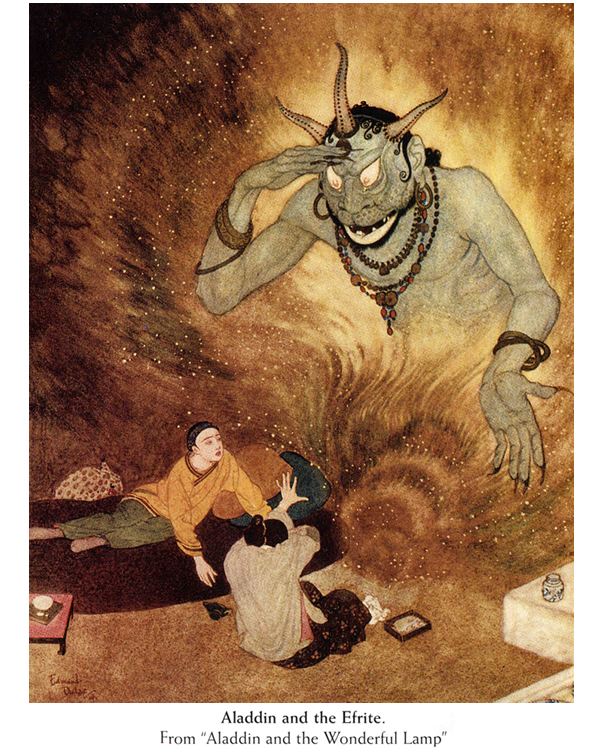
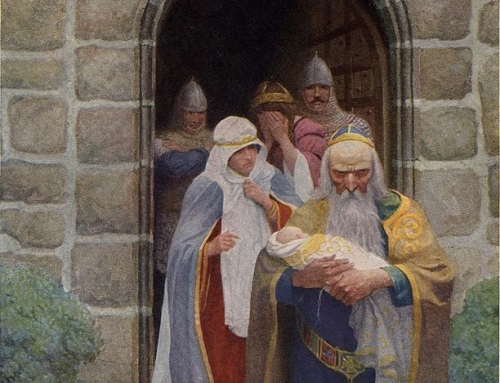
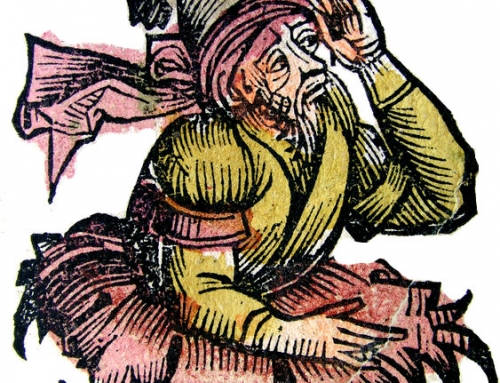

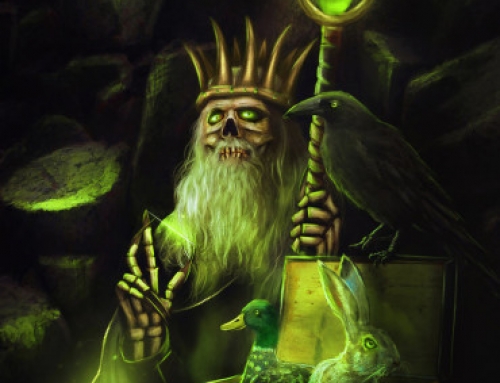
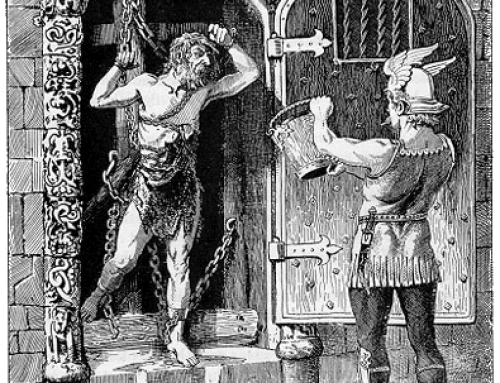
kkk
jjj